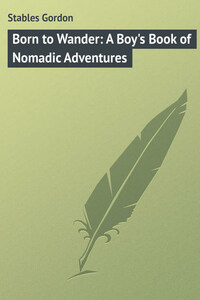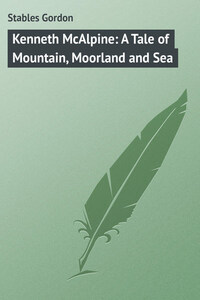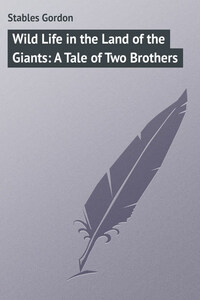Chapter One.
The Twin Rivers – A Busy Scene – Old Friends with New Faces – The Building of the Great Ship – People’s Opinions – Ralph’s Highland Home
Wilder scenery there is in abundance in Scotland, but hardly will you find any more picturesquely beautiful than that in which the two great rivers, the Clyde and the Tweed, first begin their journey seawards. It is a classic land, there is poetry in every breath you breathe, the very air seems redolent of romance. Here Coleridge, Scott, and Burns roved. Wilson loved it well, and on yonder hills Hogg, the Bard of Ettrick – he who “taught the wandering winds to sing” – fed his flocks. It is a land, too, not only of poetic memories, but one dear to all who can appreciate daring deeds done in a good cause, and who love the name of hero.
If the reader saw the rivers we have just named, as they roll their waters majestically into the ocean, the one at Greenock, the other near the quaint old town of Berwick, he would hardly believe that at the commencement of their course they are so small and narrow that ordinary-sized men can step across them, that bare-legged little boys wade through them, and thrust their arms under their green banks, bringing therefrom many a lusty trout. But so it is.
Both rise in the same district, within not very many miles of each other, and for a considerable distance they follow the same direction and flow north.
But soon the Tweed gets very faint-hearted indeed.
“The country is getting wilder and wilder,” she says to her companion, “we’ll never be able to do it. I’m going south and east. It is easier.”
“And I,” says the bold Clyde, “am going northwards and west; it is more difficult, and therein lies the enjoyment. I will conquer every obstacle, I’ll defy everything that comes against me, and thus I’ll be a mightier river than you. I’ll water great cities, and on my broad breast I will bear proud navies to the ocean, to do battle against wind and wave. ‘Faint heart never won fair lady.’ Farewell, friend Tweed, farewell.”
And so they part.
This conversation between the two rivers is held fourteen hundred feet above the level of the sea, and five score miles and over have to be traversed before the Clyde can reach it. Yet, nothing daunted, merrily on she rolls, gaining many an accession of strength on the way from streams and burns.
“If you are going seaward,” say these burns, “so are we, so we’ll take the liberty of joining you.”
“And right welcome you are,” sings the Clyde; “in union lies strength.”
In union lies strength; yes, and in union is happiness too, it would seem, for the Clyde, broader and stronger now, glides peacefully and silently onwards; or if not quite silently, it emits but a silvery murmur of content. Past green banks and wooded braes, through daisied fields where cattle feed, through lonely moorlands heather-clad, now hidden in forest depths, now out again into the broad light of day, sweeping past villages, cottages, mansions, and castles, homes of serf and feudal lord in times long past and gone, with many a sweep and many a curve it reaches the wildest part of its course. Here it must rush, the rapids and go tumbling and roaring over the lynns, with a noise that may be heard for miles on a still night, with an impetuosity that shakes the earth for hundreds of yards on every side.
“I wonder how old Tweed is getting on?” thinks our brave river as soon as it has cleared the rocks and rapids and pauses for breath.
But the Clyde will soon be rewarded for its pluck and its daring, before long it will enter and sweep through the second city of the empire, the great metropolis of the west; but ere it does so, forgive it, if it lingers awhile at Bothwell, and if it seems sullen and sad as it dashes underneath the ancient bridge where, in days long gone, so fierce a fight took place that five hundred of the brave Covenanters lay dead on the field of battle. And pardon it when anon it makes a grand and splendid sweep round Bothwell Bank, as if loth to leave it. Yonder are the ruins of the ancient castle —
“Where once proud Murray held the festive board.
*****
But where are now the festive board,
The martial throng, and midnight song?
Ah! ivy binds the mouldering walls,
And ruin reigns in Bothwell’s halls.
O, deep and long have slumbered now
The cares that knit the soldier’s brow,
The lovely grace, the manly power,
In gilded hall and lady’s bower;
The tears that fell from beauty’s eye,
The broken heart, the bitter sigh,
E’en deadly feuds have passed away,
Still thou art lovely in decay.”
But see, our river has left both beauty and romance far behind it. It has entered the city – the city of merchant princes, the city of a thousand palaces; it bears itself more steadily now, for hath not Queen Commerce deigned to welcome it, and entrusted to it the floating wealth of half a nation? The river is in no hurry to leave this fair city.
“My noble queen,” it seems to say, “I am at your service. I come from the far-off hills to obey your high behests. My ambition is fulfilled, do with me as you will.”














